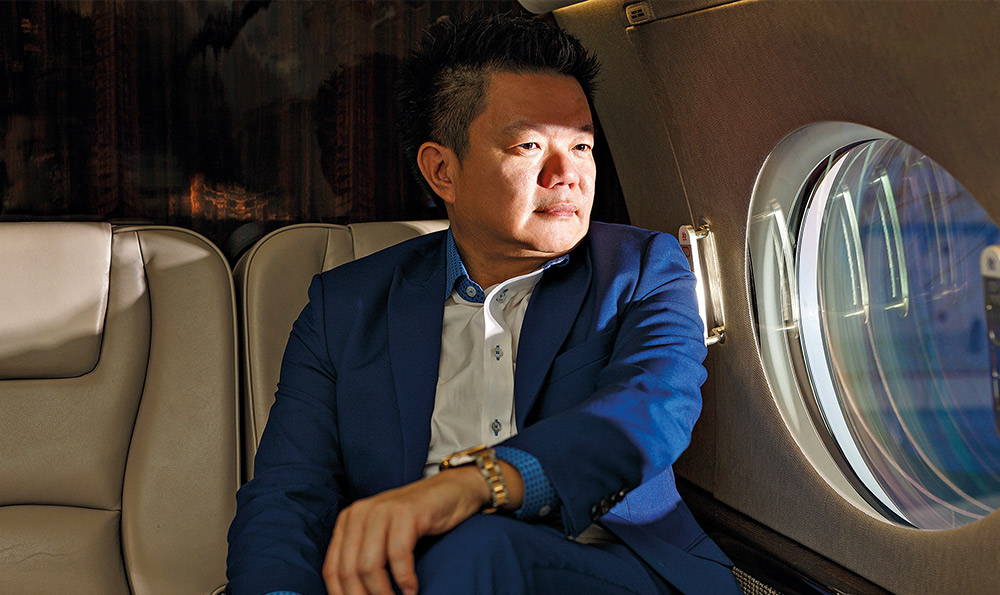It Pays to Pivot
Being agile and adaptable is one way to rise above today’s life uncertainties, especially for those in the travel sector, says entrepreneur Mr Andrew Chai (Science ’92).

At the height of the SARS outbreak in early 2003, Mr Andrew Chai founded Sass Atlantic — arguably the world’s first manpower outsourcing consultancy for the aviation industry — when he saw a gap in the provision of this service for airlines. “My goals were simple — to provide the best people and teams based on a variable costing structure to any client who wanted the best representives for their brand,” says the 52-year-old, citing Emirates as one of his clients then. In April this year, Mr Chai founded Scanmicron, an integrated solution for the containment and prevention of COVID-19 spread at workplaces, shopping malls, government buildings, and residences. He also sits on the boards of three organisations, which handle robotics, e-commerce logistics, and biotechnology respectively.
It is no secret that the COVID-19 pandemic has paralysed the travel industry. “Even the most innovative players have been affected as travel comes to a standstill,” says Mr Chai, the father of an 18-year-old son. He predicts that the travel sector will likely take three to five years for it to fully recover to pre-pandemic days, seeing that it took one year for airlines to bounce back from the SARS epidemic, which lasted about six months. “The long-term impact on commerce and economies will be detrimental to everyone, big or small,” he says.
![]()
For those of you [in the aviation industry and elsewhere] whose lives have been impacted by this pandemic, take it as a forced change. Changes — despite their short- and mid-term inconveniences — are always good in the long term. Be highly adaptable to new ways of doing things.
Mr Andrew Chai, founder of Sass Atlantic and Scanmicron
And when travel eventually resumes, it is likely to be a different experience. “Most of us will travel only for essential matters, at least for the first three years, while leisure travel will depend on how governments work together to prevent the spread of the coronavirus, as well as the reliability and efficacy of a vaccine,” says Mr Chai. He also forecasts a significant increase in airline ticket prices as a result of social distancing requirements. In addition, Mr Chai recommends that cabin crew should don personal protective equipment when providing in-flight service.
This greater emphasis on hygiene and safety moving forward has inspired Mr Chai to pivot into his latest venture, while leveraging on his industry experience. “There are technologies out there — related to air purification that filter out sub-micron particles, as well as surface coating using nanocomposites to prevent cross-contamination — that can prevent the spread of COVID-19 within the aircraft,” he says. “ A combination of these technologies and regular surface testing is the only way to make travelling viable again.”
Text by Min Ee Mao